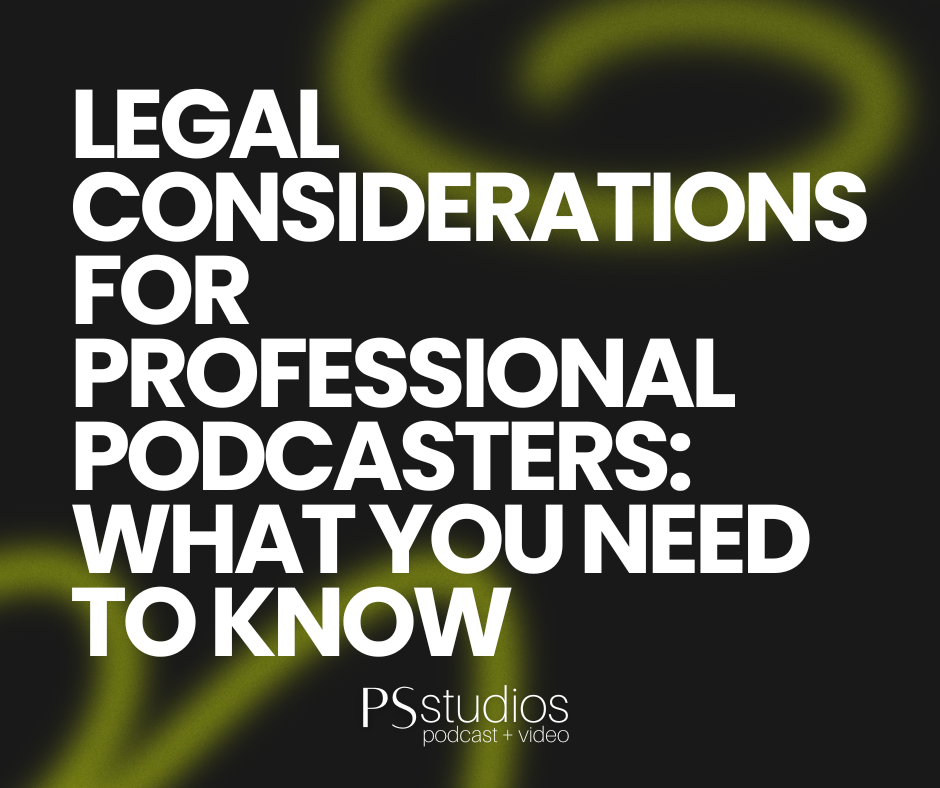
Podcasting has become a popular medium for sharing stories, knowledge, and entertainment. As the industry grows, so does the importance of understanding the legal landscape to protect your content, avoid disputes, and maintain professional integrity. Here’s what every professional podcaster needs to know about legal considerations in podcasting.
1. Copyright Laws
Copyright laws are crucial for podcasters. This applies not only to the content you create but also to the content you use. Ensure you have the proper rights to any music, sound effects, or third-party content you include in your episodes. Using copyrighted material without permission can lead to legal action and significant fines.
2. Fair Use Doctrine
Understanding the fair use doctrine can save you from potential legal issues. Fair use allows limited use of copyrighted material without permission for purposes like criticism, news reporting, teaching, and research. However, fair use is a gray area and often requires careful consideration and legal advice.
3. Licensing Music and Sound Effects
Licensing is a safer route for using music and sound effects. Various platforms offer royalty-free music or licensing agreements that grant you the right to use their content legally. Ensure you read and understand the terms of these licenses to avoid any legal complications.
4. Trademarks
Avoid using names, logos, or other trademarked material without permission. This includes potential guest appearances, product mentions, and show titles. Conduct a trademark search before finalizing your podcast name to ensure it’s not already in use.
5. Defamation and Libel
Defamation and libel laws protect individuals and organizations from false statements that can harm their reputation. As a podcaster, ensure your content is factual and refrain from making unfounded claims about individuals or companies.
6. Privacy Laws
Respecting privacy laws is crucial, especially when dealing with personal information. Always obtain consent before sharing personal stories or information about your guests or listeners. Implement privacy policies that outline how you collect, use, and protect personal data.
7. Sponsorship and Advertising
If you’re monetizing your podcast through sponsorships or ads, transparency is key. Disclose any sponsorships or paid advertisements to your audience. This not only builds trust but also complies with FTC regulations.
8. Contracts and Agreements
Contracts and agreements are essential for formalizing relationships with co-hosts, guests, sponsors, and service providers. Clear agreements prevent misunderstandings and legal disputes. Make sure all parties understand their rights and obligations.
9. Content Ownership
Clarify content ownership from the start. If you collaborate with others, specify who owns the content and any revenue it generates. This can prevent conflicts down the line, especially if your podcast becomes successful.
10. Distribution Rights
When using distribution platforms, read their terms of service carefully. Understand your rights regarding the content you upload, and ensure you retain the rights to distribute your podcast on other platforms if desired.
Navigating the legal landscape of podcasting can be complex, but it’s essential for protecting your content and reputation. By understanding and adhering to these legal considerations, you can focus on creating great content while minimizing legal risks.
Interested in starting a podcast or upleveling your existing show? Schedule your free discovery call with our expert production team at PS Studios. During this call we will discuss your goals, timeline, and how we can help. We work with clientele across the country and look forward to chatting with you!
